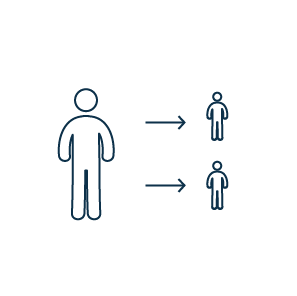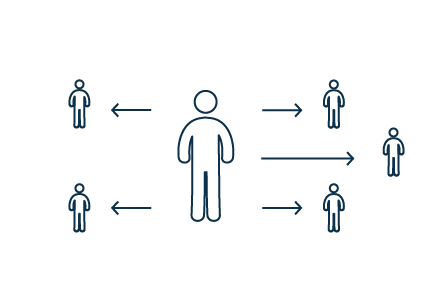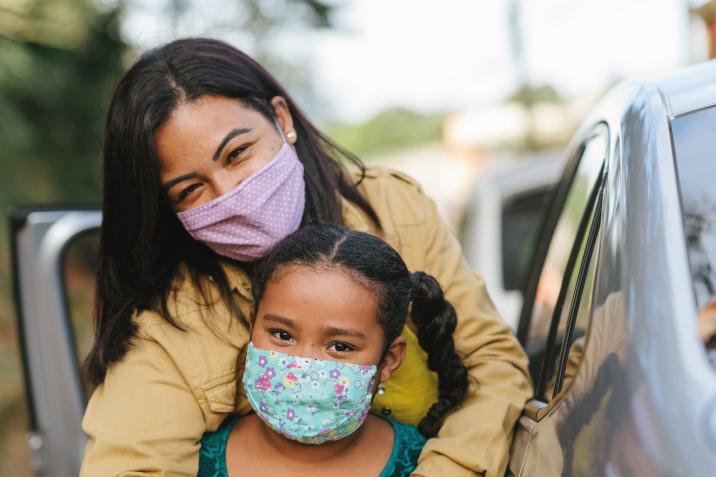The virus that causes COVID-19 (called SARS-CoV-2), like other viruses, can mutate and has mutated multiple times since the pandemic first began in late 2019. Those mutations or changes in its structure have created what’s referred to as variants.
It’s common for virus variants to develop, with some of them being more concerning than others. For example, a variant that moves from one person to another more easily creates a higher risk of infection.
What’s known as the Delta variant (B.1.614.2) is one such “variant of concern” or VOC. First appearing in late 2020, it’s now found in populations all around the world and is the dominant strain of COVID-19 in many countries.

The Centers for Disease Control and Prevention (CDC) considers a variant to be a VOC if it appears to meet one or more of a set of criteria, including that it might:
- Cause more serious cases of the disease.
- Be more transmissible.
- Have greater resistance to current vaccines and treatments
- Interfere with diagnostic test targets
"The Delta variant is more contagious than previous strains-it may cause more than 2x as many infections."
Original COVID-19 Strain

Delta Variant

"Vaccines protect you from hospitalization, severe infections and death."
Don’t take a chance with your health.

Getting the COVID-19 vaccine is the best way to prevent COVID-19 infection and end the pandemic. The vaccine cannot give you COVID-19, but it can help protect you from serious illness. Learn more about the COVID-19 vaccine and make a vaccination appointment at a location near you.
KEY QUESTIONS AND ANSWERS
Is It Easier to Catch the Delta Variant?
Yes, it is. According to disease experts at Public Health England, the Delta variant appears to be as much as 60% more contagious than the Alpha (B.1.1.7) variant of the virus. Research on the Delta variant and a mutation of it, called Delta Plus, continues.
Does the Delta Variant Cause More Serious Illness?
Yes, it does. Public Health England has published a report about the risk of hospitalization from the Delta variant. Their figures show that the risk is 2.61 times higher than with the Alpha variant.
Do the Existing COVID-19 Vaccines Work Against the Delta Variant?
We want to know your opinion
How do you rate the content you just read/watched?
How much does it motivate me to live healthy?
I am...
Provider
Representative of a Company
Insured
Agent
None of the above
While there currently is no data on the effectiveness of the Moderna and Johnson & Johnson vaccines, data suggests that the two-dose Pfizer vaccine regimen is 96% effective in preventing hospitalization from the Delta variant.
The CDC says that some authorized monoclonal antibody treatments may have a different effect on the Delta variant, but more data is needed to make a definitive statement.
Is the Delta Variant Isolated to Certain Parts of world?
No, it’s not. The Delta variant is present in all 50 U.S. states. This variant has now been detected in more than 100 countries and in the coming months, it is expected to become the dominant strain globally, spreading quickly in countries with both low and high vaccination coverage, according to the head of the World Health Organization (WHO).
Delta, which was designated as a variant of concern in May, is believed to be the reason behind a vicious second wave of the virus in India, with daily new infections that month in the country exceeding 400,000.
How Can I Protect Myself from the Delta Variant?
The best way to avoid getting a serious case of COVID-19 from the Delta variant or any known variant is to get vaccinated. In the United States, anyone 12 years of age and older are now authorized to be vaccinated. To obtain information in your country of residence, contact your local Minister of Health.
While studies are still being conducted on the effectiveness of existing vaccines with the Delta variant, the currently approved vaccines are highly effective in preventing serious illness from the Alpha variant and they’ll likely provide at least some protection against the Delta variant.
Take action to avoid serious COVID-related illness. Make an appointment today to get vaccinated.
Fully vaccinated people with Delta variant breakthrough infections can spread the virus to others.
However, vaccinated people appear to be infectious for a shorter period.
Know more about COVID and how to take care of your family
Sources: The Centers for Disease Control and Prevention (CDC); World Health Organization (WHO) Content Clinically reviewed by Baptist Health, U.S.
© 2025 Pan-American Life


